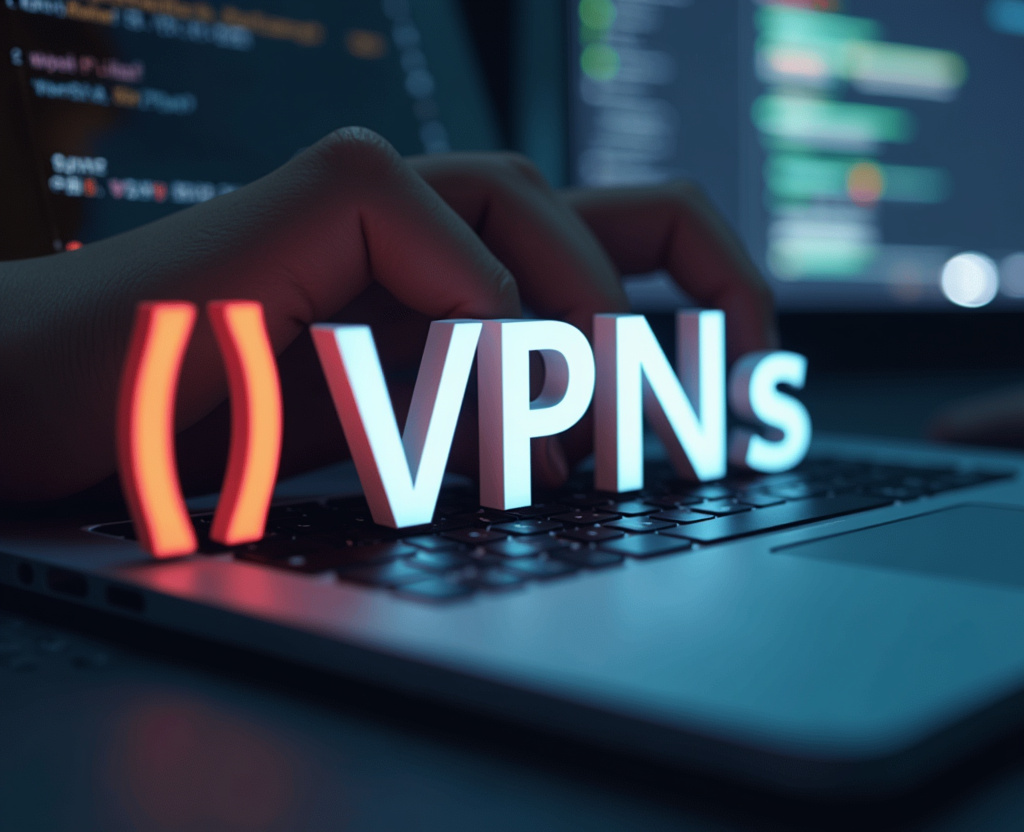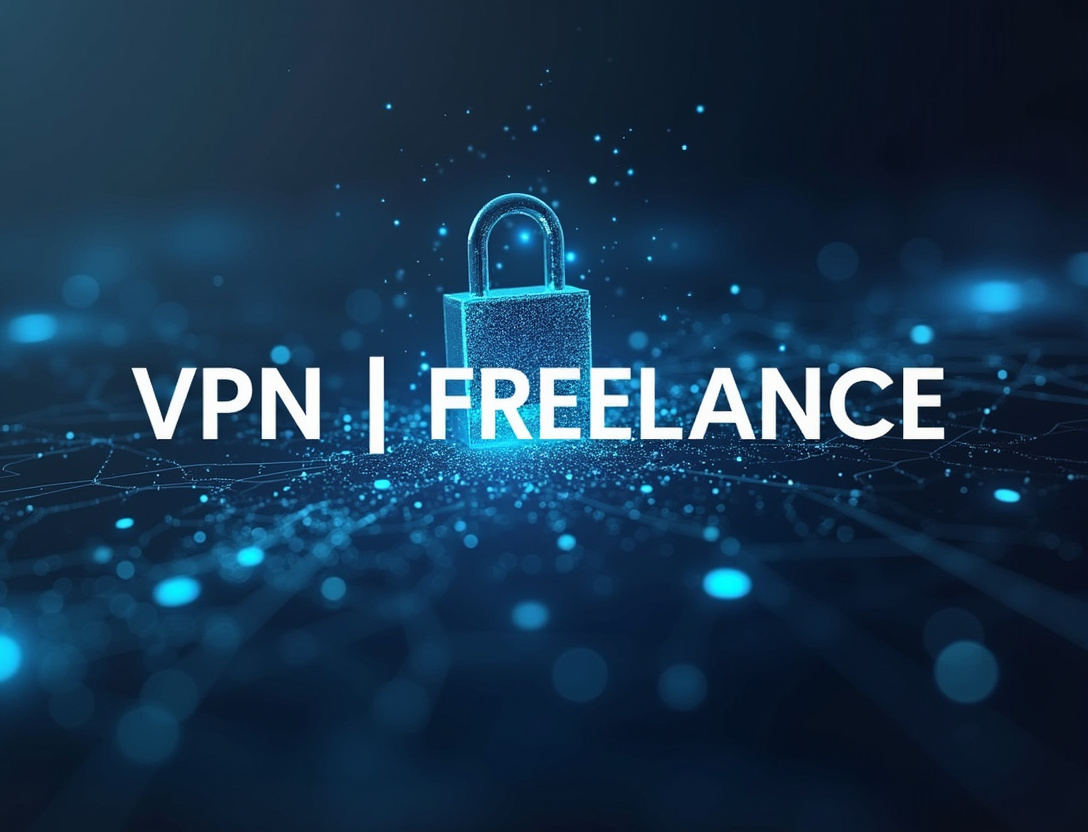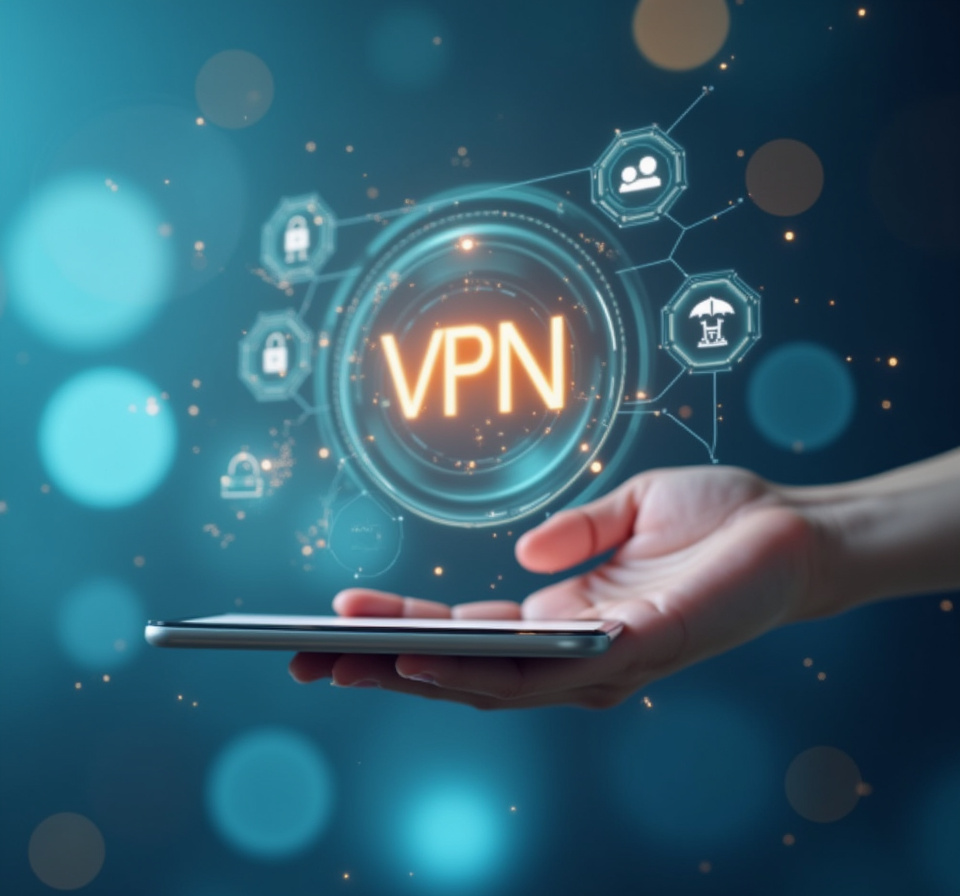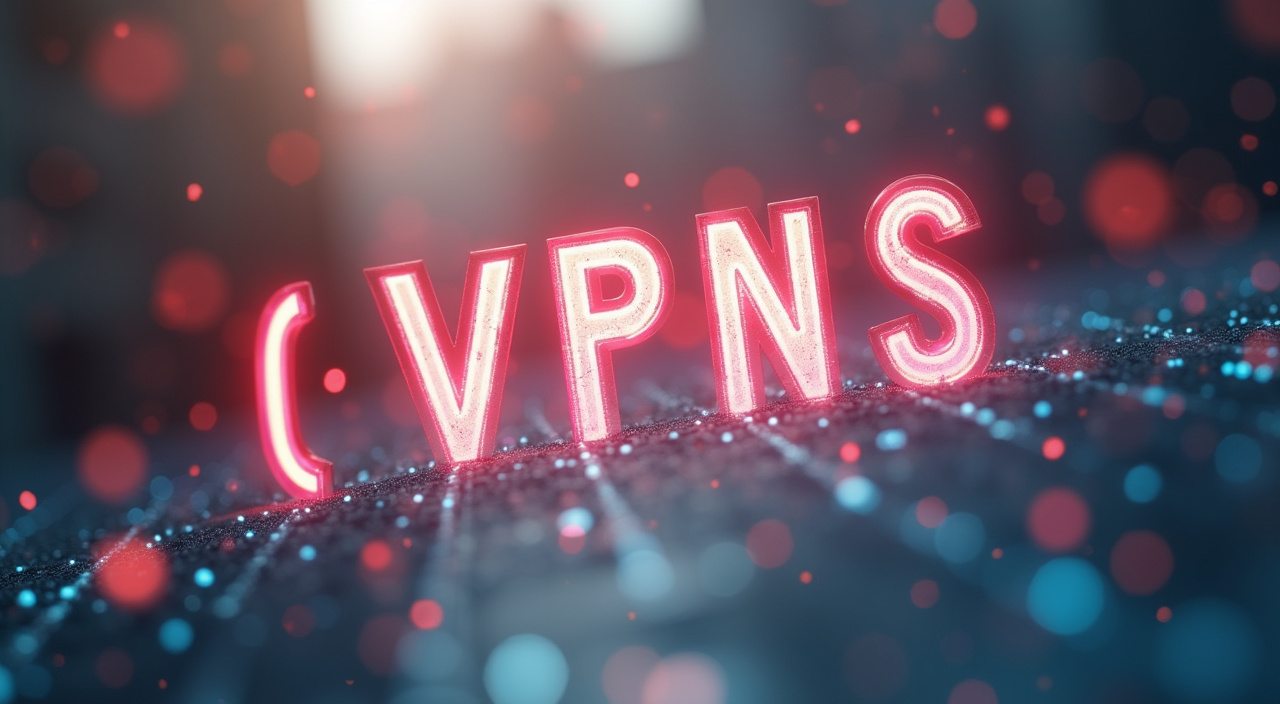Evaluating Free vs. Paid VPN Services

Table of Contents
Introduction: The Allure and Risks of VPNs
In an era defined by escalating digital connectivity, concerns regarding online privacy and security have surged to the forefront. As individuals and organizations increasingly rely on the internet for communication, commerce, and information access, the need to safeguard sensitive data and maintain online anonymity has become paramount. Virtual Private Networks (VPNs) have emerged as essential tools in this digital landscape, offering a means to encrypt internet traffic, mask IP addresses, and bypass geographical restrictions.
However, the VPN market presents a complex landscape for consumers, characterized by a fundamental dichotomy: free VPN services and paid VPN services. Navigating this landscape requires a thorough understanding of the distinct features, capabilities, and limitations of each type of service. This comprehensive analysis aims to dissect the nuances between free and paid VPNs, meticulously examining their security protocols, performance characteristics, VPN features , data privacy policies, and overall value propositions.
By providing a detailed comparison, this article empowers readers to make informed decisions aligned with their specific needs, priorities, and risk tolerance when selecting a VPN service. The central question remains: which option offers the optimal blend of security, functionality, and cost-effectiveness in the current digital climate? The initial appeal of free VPNs stems from their readily available accessibility and seemingly cost-free nature.
For individuals operating within budget constraints or those seeking rudimentary protection for everyday browsing activities, a free VPN may appear to be an enticing solution. However, a critical understanding is essential: the term "free" in this context often carries an understated but significant price. Free VPN providers frequently resort to alternative monetization strategies that can directly undermine user privacy and compromise overall security.
A prevalent practice involves the collection, logging, and subsequent sale of user browsing data to third-party advertising networks. This implies that your online actions, encompassing visited websites, entered search queries, and, more alarmingly, personally identifiable information, may be gathered and commoditized without your explicit knowledge or consent. Such a practice fundamentally contradicts the core principle of a VPN, which is to enhance and safeguard online privacy.
Furthermore, free VPN services tend to inundate users with a barrage of intrusive advertisements, ranging from disruptive pop-ups to obtrusive banners. These advertisements not only degrade the overall user experience but also can expose users to potential security risks, such as malicious links and sophisticated phishing attempts. Additionally, the bandwidth consumed by these advertisements can have a tangible impact on the VPN's performance, leading to reduced connection speeds and increased latency.
Bandwidth limitations, stringent data caps, and restricted server locations are also common characteristics of free VPN offerings. This often translates to sluggish connection speeds, frequent and disruptive disconnections, and an inability to seamlessly access geographically restricted content from various regions around the globe. Server congestion is another pervasive issue, stemming from the fact that free VPNs typically operate on a limited number of servers to accommodate a potentially vast user base.
This overcrowding leads to further performance degradation and inconsistent speeds. Security vulnerabilities represent a significant and often overlooked concern associated with free VPNs. They frequently rely on outdated or less secure encryption protocols, making user data more susceptible to interception and decryption by malicious actors.
Some free VPNs may even contain malware or spyware, posing a direct threat to device security and enabling the theft of sensitive user data.
Free VPNs: A Deep Dive into What They Offer (and Hide)
In stark contrast to the limitations and potential risks associated with free VPNs, paid VPN services are built upon a revenue model grounded in direct user subscriptions. This fundamental difference allows paid VPN providers to prioritize user privacy and security without resorting to potentially harmful monetization tactics. While a financial investment is required to access these services, the enhanced protection, superior performance, and expanded feature set offered by paid VPNs represent a significant value proposition for users seeking robust online security and anonymity.
Paid VPNs consistently implement stronger security protocols compared to their free counterparts. They routinely employ advanced encryption algorithms, such as Advanced Encryption Standard (AES) with 256-bit keys (AES-256), widely regarded as virtually impenetrable by modern computing resources. This level of encryption ensures that user data is comprehensively protected from eavesdropping and interception by unauthorized entities, including hackers, government agencies, and malicious actors.
In addition to robust encryption, paid VPNs often incorporate a suite of supplementary security features designed to enhance user protection. A critical component is the "kill switch," which automatically terminates the user's internet connection if the VPN connection unexpectedly drops or becomes unstable. This prevents unencrypted data from being inadvertently exposed, safeguarding sensitive information during potential connection disruptions.
DNS leak protection is another crucial feature, preventing Domain Name System (DNS) queries from being leaked to the user's Internet Service Provider (ISP). DNS leaks can reveal a user's browsing history and geographic location, compromising anonymity; therefore, DNS leak protection plays a key role in maintaining online privacy. A cornerstone of reputable paid VPN services is the unwavering commitment to a strict "no-logs policy." This policy dictates that the VPN provider does not collect, store, or monitor any user browsing data, including visited websites, entered search queries, IP addresses, connection timestamps, or bandwidth usage.
A transparent and verifiable no-logs policy is a key differentiator between paid and free VPNs, providing users with a clear assurance that their online activities remain private and confidential. The no-logs commitment is crucial for users handling sensitive data, engaging in secure communications, or residing in regions with restrictive internet censorship laws. In terms of performance, paid VPNs offer demonstrably faster connection speeds and significantly more reliable connections compared to free alternatives.
These providers typically maintain a vast and geographically diverse network of servers strategically located in numerous countries across the globe. This extensive server infrastructure allows users to select the server closest to their physical location, thereby minimizing latency and optimizing connection speeds. Furthermore, the larger server network helps distribute the user load evenly, preventing server congestion and ensuring consistent performance even during peak usage times.
Paid VPNs: Unveiling the Features and Security They Provide
The value comparison between free and paid VPNs hinges on the fundamental differences in their respective business models and the implications those models have on user privacy, security, and overall service quality. As previously highlighted, free VPNs often resort to alternative monetization methods that can compromise user interests. Data logging, intrusive advertising, and the sale of user data are common practices that directly contradict the core principles of online privacy and anonymity.
These practices transform users into products, where their browsing activities and personal information are harvested and monetized without their explicit consent. This inherent conflict of interest makes free VPNs a risky proposition for individuals who prioritize their online security and value their digital privacy rights. Paid VPNs, conversely, derive their revenue stream directly from user subscriptions, creating a direct alignment of interests between the provider and the user.
Paid VPN providers are incentivized to prioritize user privacy, enhance security measures, and deliver reliable performance to retain their subscriber base. This alignment of interests fosters a more transparent and trustworthy relationship between the user and the VPN provider. A paid subscription model allows VPN companies to reinvest resources into improving their infrastructure, enhancing security protocols, and expanding their server network while simultaneously maintaining a strong commitment to a no-logs policy and protecting user data.
When evaluating the myriad of VPN services available, it's crucial to consider more than just the initial cost. The overall value proposition should be the primary focus, encompassing factors such as security features like AES-256 encryption, kill switches, DNS leak protection, and protocol choices like OpenVPN or WireGuard. These factors contribute directly to your security when using VPN services.
While free VPNs might seem appealing due to their lack of upfront cost, they often come with hidden drawbacks that impact user experience and security. These may include compromised privacy, sluggish connection speeds, limited server selection, restrictions on bandwidth and data usage, and a higher risk of encountering malware or intrusive advertising. Paid VPNs, although requiring a financial commitment, offer better protection, greater performance, and an enhanced range of features.
These make them a worthwhile investment for users who want to protect their data. Users needing consistent VPN for banking or confidential tasks will find paid VPNs essential. A key differentiator lies in the level of customer support provided.
Paid VPNs typically have help available around the clock, which can be useful for tech issues.
Making the Right Choice: Factors to Consider for Your Needs
Expanding further on the feature sets and capabilities of paid VPN services, it's crucial to delve deeper into the advanced functionalities and customization options that set them apart from their free counterparts. These additional features not only enhance user experience but also provide advanced users with greater control over their VPN connection and online privacy. One prominent feature is the support for multiple VPN protocols.
Paid VPNs typically offer a range of protocols, including OpenVPN, IKEv2/IPsec, WireGuard, and L2TP/IPsec. Each protocol offers different trade-offs between speed, security, and compatibility, allowing users to select the protocol that aligns with their specific needs and network conditions. OpenVPN, for example, is widely regarded as one of the most secure and versatile protocols, offering robust encryption and support for a wide range of devices and operating systems.
WireGuard, on the other hand, is a relatively new protocol that prioritizes speed and performance while still maintaining a strong security profile. The availability of multiple protocols empowers users to optimize their VPN connection for different purposes, such as streaming, gaming, or simply browsing the web securely. Split tunneling is another advanced feature offered by many paid VPN services.
This feature allows users to selectively route specific internet traffic through the VPN tunnel while allowing other traffic to bypass it and connect directly to the internet. Split tunneling can be particularly useful for accessing local content or services while simultaneously protecting sensitive data with the VPN connection. For example, a user might choose to route their web browsing and email traffic through the VPN while allowing their streaming traffic to bypass it, thereby maximizing streaming speeds without compromising their online privacy.
Dedicated IP addresses are also offered by some paid VPN providers. A dedicated IP address is a static IP address that is assigned exclusively to a single user. This can provide enhanced security and anonymity compared to shared IP addresses, which are used by multiple users simultaneously.
A dedicated IP address can reduce the likelihood of being blacklisted by websites and services due to the actions of other users sharing the same IP address. It can also be used to bypass certain VPN restrictions and access geo-restricted content that is blocked for shared IP addresses. Paid VPN services typically offer a more user-friendly interface and experience.
Subscribing to a VPN service provides access to applications from the VPN provider, which simplifies use of the service. These applications have a user-friendly interface that makes setting up the tool easy. This is different from the free options that generally do not offer tools to facilitate use or help solve any issue.
Ultimately, the decision of whether to opt for a free or paid VPN hinges on a careful evaluation of individual needs, priorities, and risk tolerance. For users who require only basic protection for casual browsing and are willing to accept the inherent risks associated with free VPNs, a free service might suffice. However, it's crucial to acknowledge that "free" often comes at the cost of compromised privacy, security vulnerabilities, and limited performance which directly affects the quality of the VPN services.
The monetization practices employed by many free VPN providers, such as data logging, intrusive advertising, and the sale of user browsing data, directly contradict the core principles of online privacy and anonymity. Furthermore, the limited bandwidth, data caps, and server locations offered by free VPNs can significantly impact the user experience and limit access to geographically restricted content. Given these limitations and potential risks, a paid VPN is the far better option.
Paid VPNs provide better security, are more private and ensure better performance to the users. Also, paid VPNs offer much better support, they solve your issues faster and their applications are optimized for different platforms. For individuals handling sensitive information, engaging in confidential communications, or residing in regions with restrictive internet censorship laws, a paid VPN represents a significantly better investment.
The robust security protocols, strict no-logs policies, and high-performance infrastructure offered by paid VPNs provide a superior level of protection and privacy. Paid VPNs also allow for more customizable protocols such as OpenVPN, IKEv2/IPsec or WireGuard. Free VPNs offer limited options.
Before selecting a VPN, it's essential to conduct thorough research. Investigate the VPN's data logging policy, payment methods and server location. A reliable customer service is a must, also, it is recommended to review the terms and conditions.
Remember that choosing the appropriate VPN services for your needs is a crucial decision. It is more complex than simply selecting the free or paid option. As online threats continue to evolve, protecting your digital security requires an informed process.
Therefore, keep an open mind to ensure that your data will remain private and secure.
Stay Updated
Get the latest VPN news, tips, and exclusive deals to your inbox.




